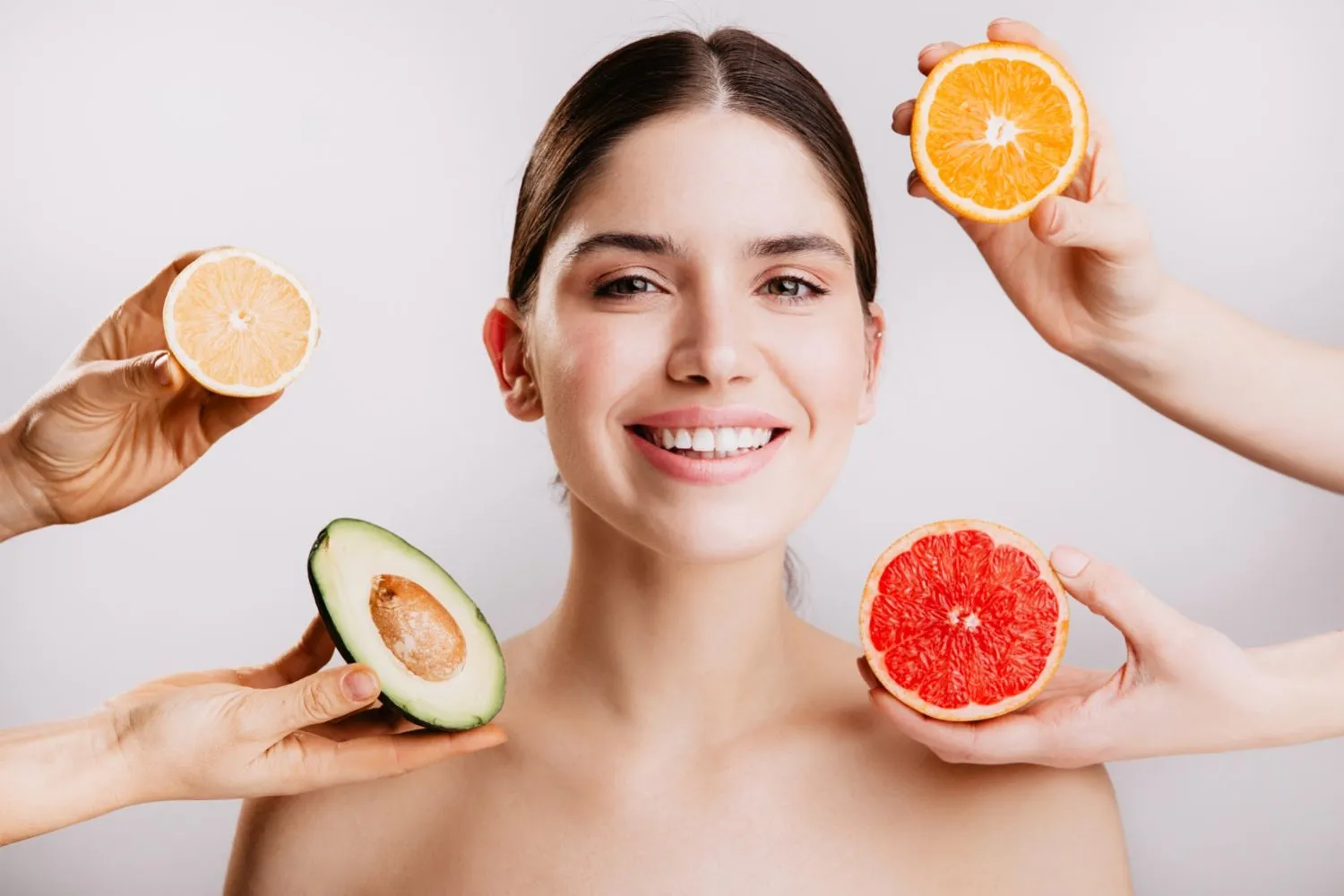
Your diet plays a crucial role in your overall health, and it also has a significant impact on the health and appearance of your skin. The foods you consume can either nourish your skin, promoting a youthful and radiant complexion, or contribute to skin issues such as acne, dryness, and premature aging. Understanding how your diet affects your skin can help you make informed choices to support skin health. Here are some key ways in which your diet can impact your skin.
Inflammation
Chronic inflammation in the body can manifest as skin conditions like acne, eczema, and psoriasis. Certain foods can either increase or decrease inflammation. Foods high in sugar, refined carbohydrates, and unhealthy fats (such as fried and processed foods) tend to promote inflammation, while foods rich in antioxidants, omega-3 fatty acids, and vitamins A, C, and E help reduce inflammation. To support healthy skin, focus on consuming a diet rich in fruits, vegetables, whole grains, lean proteins, and healthy fats like avocados and nuts.
Hydration
Proper hydration is essential for maintaining skin health. Dehydration can lead to dryness, flakiness, and a dull complexion. Consuming an adequate amount of water and hydrating foods like fruits and vegetables helps keep your skin cells plump and moisturized. Limiting alcohol, caffeinated beverages, and sugary drinks, which can dehydrate the body, is also important for maintaining skin hydration.
Collagen Production
Collagen is a protein that provides structure and elasticity to the skin. As you age, collagen production naturally decreases, leading to wrinkles and sagging skin. However, certain nutrients can support collagen synthesis. Foods rich in vitamin C, such as citrus fruits, berries, and leafy greens, help promote collagen production. Additionally, consuming foods containing amino acids, like lean meats, fish, eggs, and legumes, provides the building blocks for collagen formation.
Antioxidant Protection
Your skin is constantly exposed to environmental stressors, such as UV radiation and pollution, which generate free radicals that damage skin cells. Antioxidants help neutralize these free radicals and protect the skin from oxidative stress. Include foods high in antioxidants, such as berries, dark leafy greens, nuts, seeds, and green tea, to support your skin’s natural defense against damage.
Blood Sugar Balance
Consuming foods with a high glycemic index, such as sugary snacks, white bread, and refined cereals, can cause spikes in blood sugar levels. These spikes trigger a cascade of events, including increased insulin production, inflammation, and the production of excess sebum, which can contribute to acne breakouts. Opt for low glycemic index foods like whole grains, legumes, and non-starchy vegetables to help maintain stable blood sugar levels and support skin health.
Healthy Fats
Healthy fats, such as omega-3 fatty acids found in fatty fish, chia seeds, and walnuts, are crucial for maintaining the integrity of the skin barrier. The skin barrier acts as a protective shield, preventing moisture loss and protecting against external irritants. Including these healthy fats in your diet helps keep your skin supple, hydrated, and less prone to dryness and irritation.
Vitamins and Minerals
A variety of vitamins and minerals play important roles in skin health. For example, vitamin A supports cell turnover and promotes a smooth complexion, while vitamin E helps protect against UV damage and reduces inflammation. Minerals like zinc and selenium support wound healing and reduce inflammation. Including a range of colorful fruits and vegetables, whole grains, lean proteins, nuts and seeds in your diet ensures you’re getting a diverse array of essential nutrients for your skin.
Gut Health
Emerging research suggests that the gut-skin connection plays a role in skin health. A healthy gut microbiome is crucial for proper digestion and absorption of nutrients, which in turn affects skin health. Consuming a diet rich in fiber from whole grains, fruits, and vegetables supports a healthy gut by promoting beneficial gut bacteria. Probiotic-rich foods, such as yogurt, kefir, and sauerkraut, can also contribute to a balanced gut microbiome.
Zinc
This mineral is involved in the production of collagen, which helps maintain skin elasticity and firmness. Zinc also has antimicrobial properties that can aid in controlling acne. Foods rich in zinc include seafood, lean meats, whole grains, and legumes.
It’s important to note that while diet plays a significant role in skin health, it’s not the sole factor. Other lifestyle choices, such as getting enough sleep, managing stress levels, and practicing good skincare habits, also contribute to healthy skin. Furthermore, individual responses to certain foods may vary, and underlying medical conditions can impact skin health. If you have specific concerns about your skin, it’s advisable to consult with a dermatologist or registered dietitian for personalized guidance.
In summary, adopting a balanced diet that focuses on whole, nutrient-dense foods can support skin health and contribute to a radiant complexion. Prioritize foods that reduce inflammation, support collagen synthesis, provide antioxidant protection, maintain blood sugar balance, and supply essential vitamins and minerals. By nourishing your skin from the inside out, you can achieve a healthier, more vibrant complexion.
